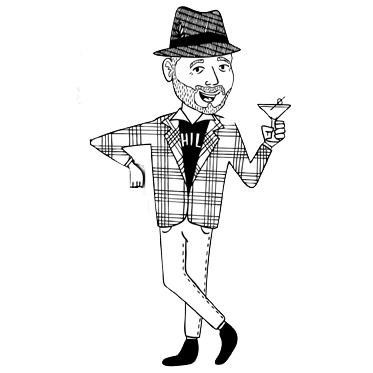
With the Phillies all but mathematically eliminated from this year’s playoffs with perhaps the worst bullpen in the history of baseball, one has to wonder, “Why don’t we still have the A’s, dammit? Why did Oakland get the good Philly baseball team and we got a team that is 39 losses away from becoming the 2nd team in sports history to lose 10,000 games? (The first team, the Washington Generals, lost to the Globetrotters every single day for 30 years.) After all, the Philadelphia A’s won 5 World Series in 50 years while the Phillies have won 1 in 123. And I bet the A’s have never had as bad of a bullpen as we do this year. Well, here’s the story from the Philadelphia Athletics Historical Society.
Lack of sufficient funds, absence of a full minor league system, the age of Connie Mack and the growing popularity of the Phillies in 1950 all contributed to empty seats at Shibe Park (re-named Connie Mack Stadium officially in 1953) Eventually, sons Roy and Earl Mack would buy controlling shares of the club from remaining Shibe family members and their half brother, Connie Mack Jr. To do so, they assumed a large mortgage. The debt load, coupled with the unfortunate decision to sell the concessions ( a major income source ) led to the sale of the club in 1954 to Arnold Johnson who moved the team to Kansas City despite several local efforts to buy the club which were not accepted by the American League.
Screw you, Arnold Johnson! Screw you!
There’s more info on how the team moved after the jump
This from wikipedia:
Ironically, for many years the Athletics of Connie Mack were Philadelphia’s more popular club. But the team’s chronic failures on the field since the early 1930s and its lack of resources undermined it. In the mid-1940s two fatal blows were struck. First, the stepchild Phillies of the National League were bought by the wealthy Robert R.M. Carpenter, a DuPont heir. Carpenter then proceeded to spend lavishly on young players, resulting in a Phillies’ NL pennant in 1950; they began to outdraw the Athletics and could now claim to be the city’s favorite baseball team. Second, a power struggle between two branches of the Mack family – essentially, Roy and Earle, Mack’s two sons from his first marriage, were ranged against Connie’s second wife and their son from that union, Connie Jr. – resulted in a dangerous depletion of capital. In order to maintain control of the A’s, the elder Mack and his oldest sons mortgaged Shibe Park and deprived themselves of concessions revenue. Connie Sr., 87, retired as manager in the autumn of 1950 under pressure from Roy and Earle. He remained team president, but when he disappeared from the scene, a lot of goodwill disappeared with him. By 1954, the last-place Athletics were gasping.
Wooing Roy and Earle Mack, who represented their father as majority owners, Johnson finally convinced them to sell their shares for $3.5 million, then withstood a furious, eleventh-hour “save the A’s” campaign from Philadelphia officials that nearly swayed Connie Sr.’s support of the deal. When the 91-year-old patriarch approved the transaction, the A’s moved to Kansas City.

